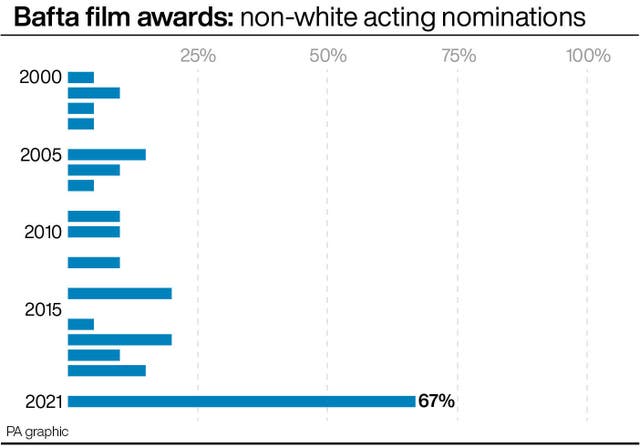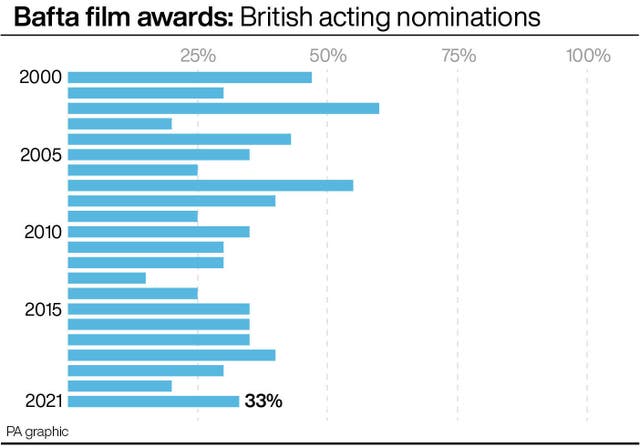Bafta chiefs hail most diverse film nominations in modern history
A record four women have been nominated for best director.

Bafta chiefs have said they hope the nominations for the annual film awards have been “nudged in an interesting direction” after a raft of changes were introduced to respond to a lack of diversity last year.
The British Academy of Film and Television Arts expanded the nominations for director and the acting categories from five to six and introduced changes to voting, membership and campaigning processes after there were no non-white acting nominees in 2020 and all the directing nominees were men.
The 2021 nominations are the most diverse in modern history, with four non-white nominees out of six in each of the acting categories, and four women listed in the best director category, the most ever.

Asked if he thinks it is the changes that led to the diversity of the nominations this year, Marc Samuelson, chair of the Bafta film committee, told the PA news agency: “It’s very difficult to answer that question because every year it depends what films are put in front of you, Bafta doesn’t decide what gets made or distributed.
“But we think we hopefully have nudged it in an interesting direction.
“There is a much broader range of films that have been nominated, no particular film has dominated and I think that is good.
“People have been very discerning about exactly what has been nominated and the phenomenal number of people who have never been nominated before, who found their way through this year, is fantastic
“I think the other thing is the very strong presence of British films, one way or another, is something to really be celebrated and something the industry wanted to see.”

Dame Pippa Harris, deputy chair of Bafta added: “I think one of the big changes that Bafta made was the introduction of a list of films, with each member given 15 films to watch in the first round and they were chosen randomly.
“What it meant was that every single film that was entered, 258 in total, hundreds of members were watching each title and we could guarantee that – while in previous years, there is a ground swell of opinion about the type of movies that are going to win the awards so people gravitate towards those films, they feel they need to watch them – this time we didn’t have any of that.
“And also the pandemic itself was instrumental because it meant that in previous years where big movies have had massive marketing campaigns behind them and every time you stepped out of your front door you saw a poster or turned on the TV there was an ad, the distributors didn’t do that this year.
“People were allowed to make up their own minds and watch a broad range of films and these are the ones they have chosen to recognise.”
She continued: “Although Bafta has made certain changes, what we didn’t do was introduce any system of quotas.
“When we did the review process, talking to people from under-represented groups, nobody wanted that.
“They didn’t want to feel they were getting a nomination because they were a woman of colour, all they wanted was for their work to be seen and for there to be a level playing field and that is what we have tried to ensure, so there are no quotas in any of these nominations categories at all.”
The EE British Academy Film Awards will take place on April 11.





